European Platform for Digital Humanism
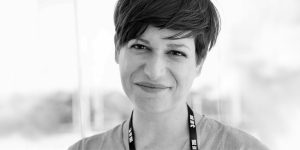
Key Note: Lorena Jaume Palasì
Founder of The Ethical Tech Society. Her research focuses on the ethics of digitalization and automation and, in this context, on questions of legal philosophy. 2017 Appointed by the Government of Spain in the Council of Eminent Persons on Artificial Intelligence. Former member of the High Level Expert Group on Artificial Intelligence of the EU Commission. 2018 Theodor Heuss Medal "for their contribution to a differentiated consideration of algorithms and their mechanisms of action" with the AlgorithmWatch initiative.
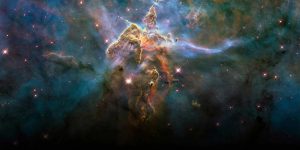
Best Of ESERO
ESERO Austria (AT)
ESERO (European Space Education Resource Office) is a project run by the European Space Agency (ESA) and education partners in various European countries to promote the interest of young people in scientific issues (MINT subjects in primary and secondary education). In order to achieve this goal, ESERO offers teachers a wide range of teaching materials and training programs. ESERO Austria has been active at the Ars Electronica Center Linz on behalf of ESA and FFG/BMK since 2016.
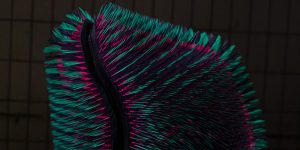
AILab
at the 2020 Ars Electronica Festival
The European ARTificial Intelligence Lab emerged from the European Digital Art and Science Network, a creative collaboration between scientific institutions, Ars Electronica and cultural partners throughout Europe that unites science and digital art. The European ARTificial Intelligence Lab takes up this theme and addresses the visions, expectations and fears that we associate with artificial intelligence.
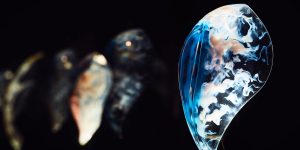
STARTS Day
The Science+Technology+Arts = STARTS Initiative is a program of the European Commission to encourage synergies between the arts and technology that support the innovation industry and society. STARTS promotes the inclusion of artists in research and innovation activities thoughout Europe.
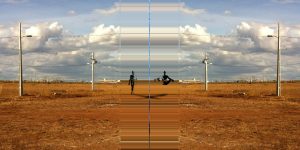
EMAP
at the 2020 Ars Electronica Festival
The basic purpose of the European Media Art Platform (EMAP) program is to enable European artists to collaborate on projects and consequently to create closer bonds between European media organisations.

STARTS Exhibition
Kepler's Garden on the JKU campus
STARTS is a platform aiming to foster alliances of technology and artistic practice that effectively implement European policymaking to nurture innovation and that also benefit the art world.
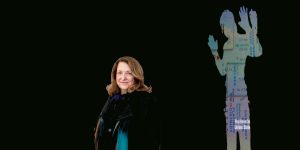
Key Note: Lynn Hershman Leeson
Lynn Hershman Leeson (US)
For over fifty years, Hershman Leeson’s practice mines the intersections of technology and the self. She is known for her groundbreaking contributions to media art from Artificial Intelligence to DNA programming, often anticipating the impact of technological developments in society.
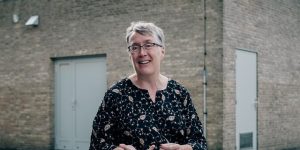
Key Note: Joanna Bryson
Joanna Bryson
Joanna Bryson is Prof. of Ethics and Technology at the Hertie School. Her research focuses on the impact of technology on human cooperation, and AI/ICT governance. From 2002-2019 she was on the Computer Science faculty at the University of Bath. She has also been affiliated with the Dpt. of Psychology at Harvard University, the Dpt. of Anthropology at the University of Oxford, the School of Social Sciences at the University of Mannheim, and the Princeton Center for Information Technology Policy
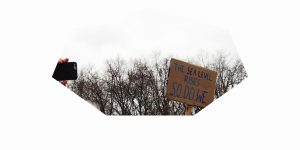
Creative Question Challenge: Radical change by working together
Kat Austen (UK/DE), Indrė Žliobaitė (FI), Laurence Gill (IE), Andrew Newman (AT/AU)
'Let us finish what we started'. This is how the UN introduces its first Sustainable Development Goal - to end poverty in all forms and dimensions by 2030. The 17 Sustainable Development Goals and their 169 targets have been described as a sprawling, misconceived mess of grandiose intentions. The title of the development agenda itself - 'Transforming our World' - oozes utopian ambition. It was adopted by 193 nations in 2015. Five years later and with ten years left, how do you think our world will transform?
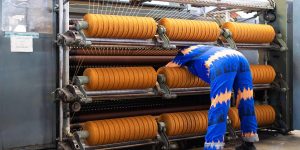
STUDIOTOPIA
STUDIOTOPIA is a European initiative that seeks to activate the collaborative and interdisciplinary expertise required to face these future challenges by implementing an inverse art and science residency model. Scientists from diverse disciplines responded to an open call to work alongside and learn from leading European artists. In Creative Question Challenges at this year’s Ars Electronica, future problems will be explored and future solutions hypothesized with the broadcast beginnings of a 17-month conversation between artists and scientists.

STARTS - Science, Technology, Arts
at the 2020 Ars Electronica Festival
STARTS is a platform aiming to foster alliances of technology and artistic practice that effectively implement European policymaking to nurture innovation and that also benefit the art world.
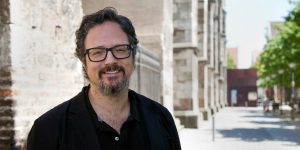
Best Practices for the Conservation of Media Art from an Artist's Perspective
Rafael Lozano-Hemmer (MX/CA)
Talk - For the past five years, media artist Rafael Lozano-Hemmer has been developing a system of procedures to help his studio deal with the maintenance of hundreds of computerized artworks that are in collections around the world. In this talk, Rafael will go over the main methods to accomplish this, in the hope that other artists will adopt them and create realistic expectations for potential collectors.
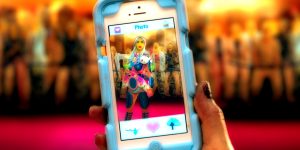
Business Models for Online Contents
Brendon Ciecko (US), Ulvi Kasimov (UK) and Aleksandra Artamonovskaja (CZ/UK), Sabine Seymour (AT) Moderators: Nathalie Pichard (CH), Thierry Baujard (FR)
The panel Business Models for Online Contents will investigate various entrepreneurial endeavors of platform-based access to online content, and how they are monetized. Crowdfunding, licenses or subscription models are only a few of the strategies institutions have to generate revenues in cultural & creative industries, and to secure revenue for artists and content developers.
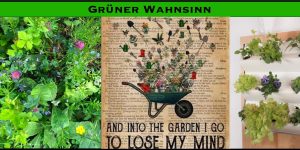
Green Nonsense
Green Nonsense is a creative food laboratory where knowledge transfer is of central importance. The aim is to spread awareness of wild medicinal herbs, which grow in the wilderness and are used in traditional European medicine, as "food and experience design".
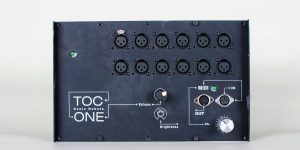
TOC ONE
Moritz Simon Geist (DE)
The Music Robotic System TOC ONE explores the sound properties of physical objects. It can be used to squeeze sound and rhythms out of almost everything - from music instruments like drums to experimental materials like metal sheets, household items or old car parts. The robotic actuators are mounted on clamps, to be attached in a free manner to surfaces, objects and instruments. The robotic actuators are controlled with standard music systems like Ableton Live or a keyboard.
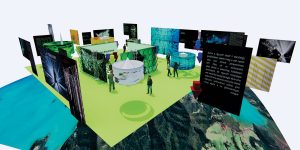
Get.Inspired
Alejandro Martin (ES), Bjorn Lustic (US), Holger Volland (GE), Jens Heithecker (GE), Patrick Tomelitsch (AT), Becky Lees (UK), Cyberballet (DE), Mikael Fock (DK), Sabine Seymour (AT)
This year’s Get Inspired session seeks to cover a vast array of interesting, diverse practices and approaches with a focus on digital and virtual projects, virtual events, platforms and contents. The panel will present examples from events, fairs, tourism, performance venues and museums.
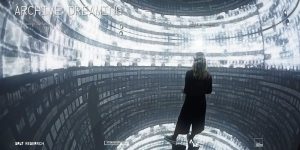
Synesthetic Architecture
Refik Anadol (TR), Kenric McDowell (US)
In Synesthetic Architecture, Refik Anadol (TR/US) and Kenric McDowell (US) take viewers on a journey into artistic and creative practice at the intersection of artificial intelligence, architecture and spatial design. They discuss both Refik’s personal experience of diving into deep learning technologies as a means of artistic expression and the development of this hybrid field over the past years.
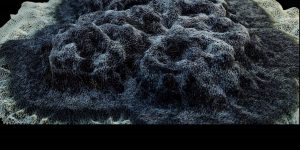
Fermenting Futures: BioArt and Yeast Biotechnology in Uncertain Times
Anna Dumitriu (UK), Alex May (UK)
“Fermenting Futures” is a project by artists Anna Dumitriu and Alex May which traverses BioArt, synthetic biology, digital technologies, sculpture, craft and installation and explores the significance of yeast biotechnology from a cultural perspective and seeks to engage arts audiences in the history and future of this important but under-recognised field.
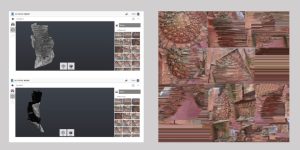
Co\\aborative Conc(re)te
Gareth Proskourine-Barnett (GB), Mike Dring (GB), Alessandro Columbano (IT)
Co\\aborative Conc(re)te is an ongoing conversation between the artist collective, C100, and the cityof Birmingham using architecture to examine notions of progress, change, dis-location, and discovering the lost, forgotten and misplaced works reflecting a landscape of continual synthetic flux. When a building is demolished, it becomes a ghost. Its image haunts us, reminding us of a future that never came to be. But what if previous versions of the city remain in the digital realm. Our events explore what happens when a building that no longer occupies physical space lives on within digital networks - when it ceases to exist the physical matter its occupation of virtual territories take on an added significance? We (re)construct, (re)imagine and (re)build an idea of the future, for temporary gatherings in galleries or other unexpected venues as we work across sound, digital imagery, printed works, moving images, and structural models. Using adapted archival material and found soundscapes, C100 celebrates a collective vision for the future city, one lost to the bulldozer, the other emergent from the dust.
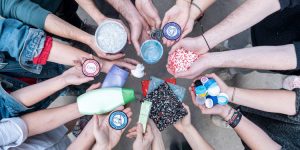
Meet the S+T+ARTS Community: Building Open Source Platforms
Joseph Klatt (US), Sören Lex (AT)
Precious Plastic and Precious Plastic Universe, started by industrial designer Dave Hakkens in 2013, is one of those platforms: focused on the reduction of plastic waste through sharing an open source toolkit of technologies and ideas, it has become a global movement of 80.000 people connected by the same passion and vision.


